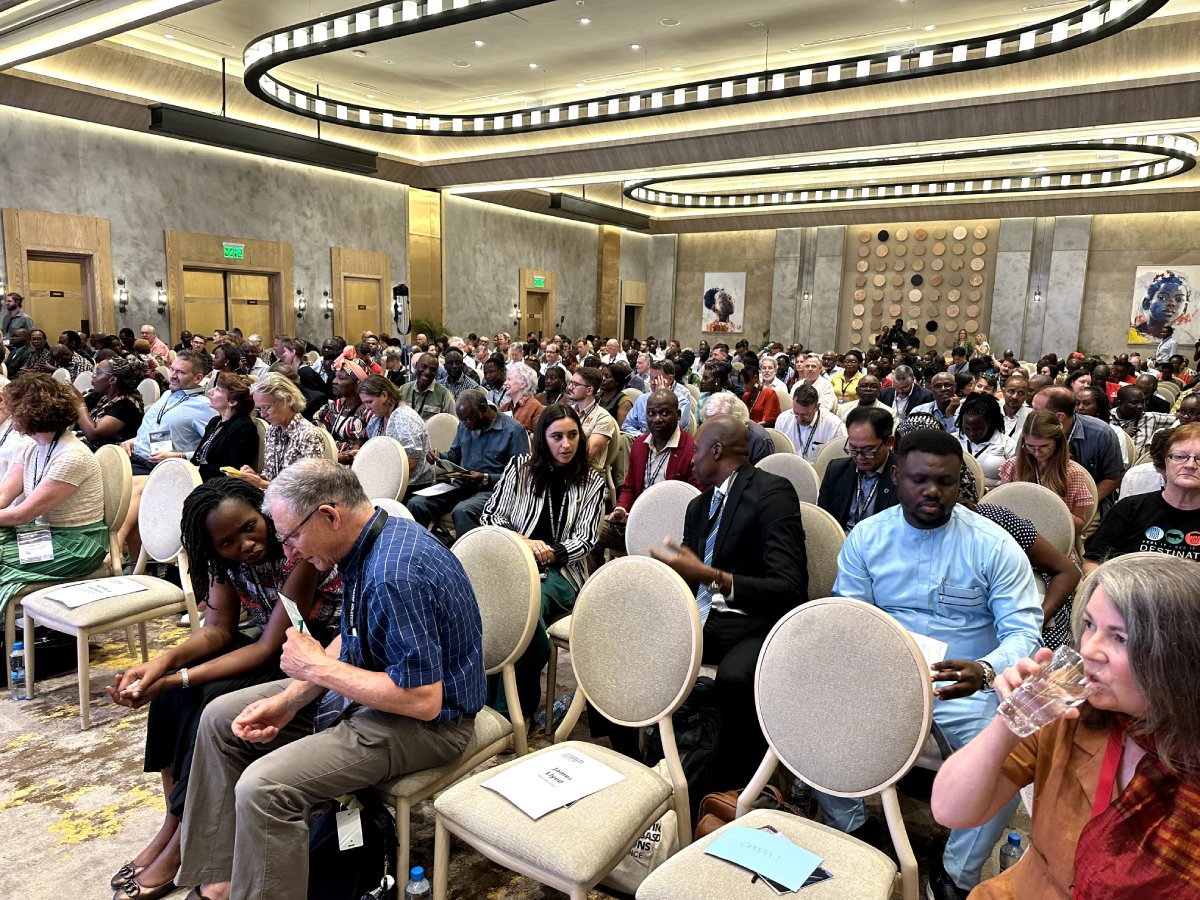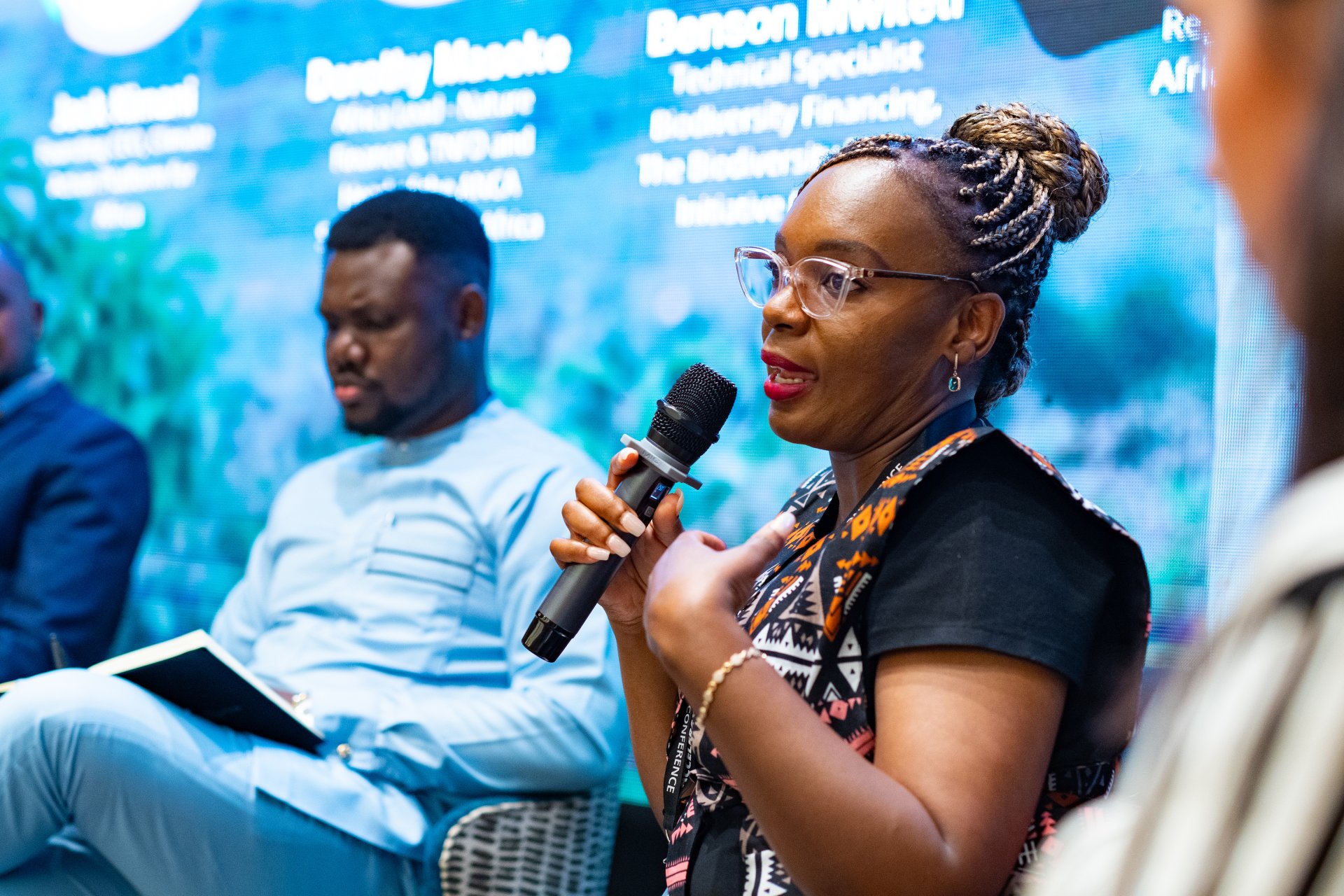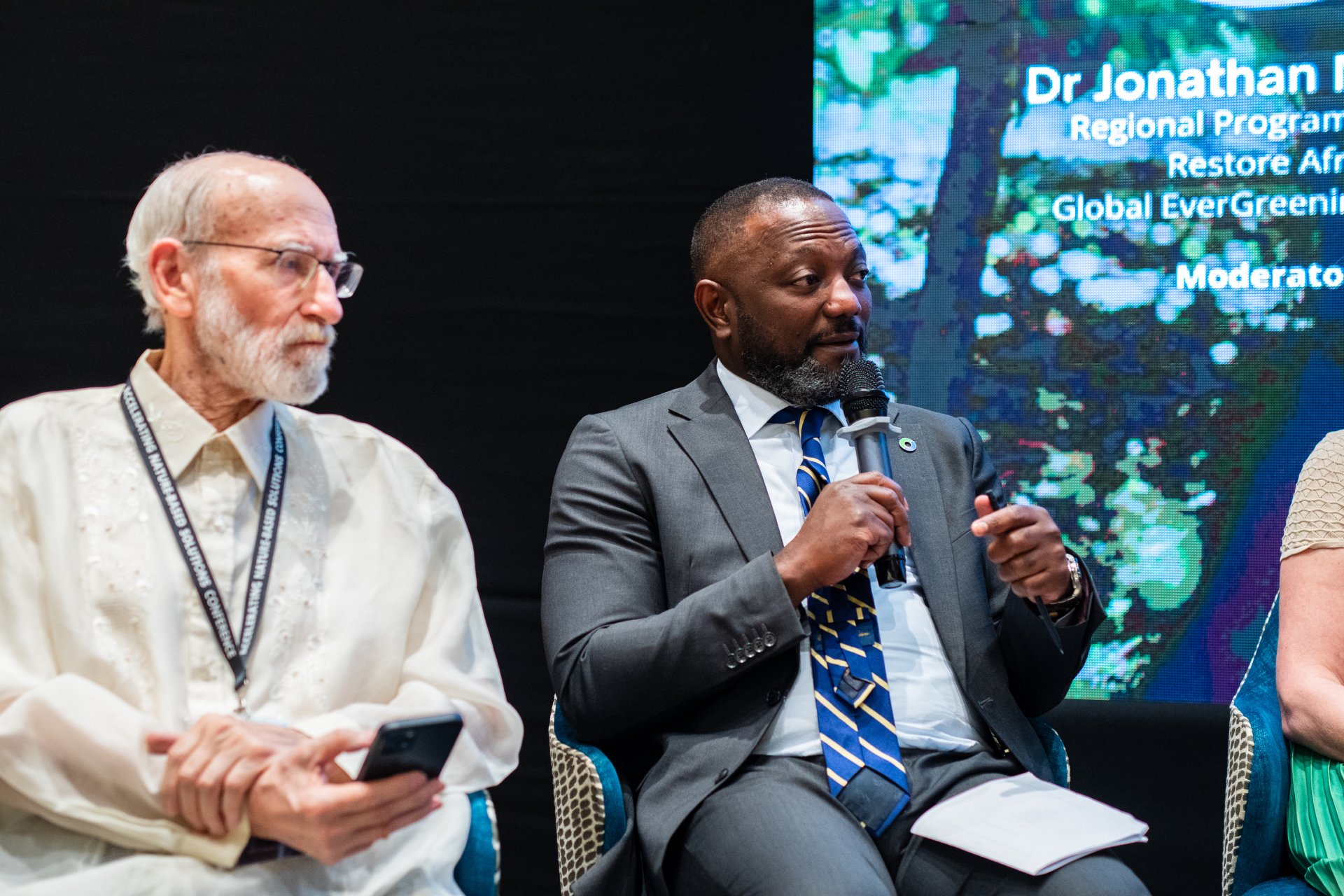The Global EverGreening Alliance (GEA). GEA is the world’s largest environmental restoration alliance of research, conservation, and development sector organisations, focused on developing and delivering transformative projects to restore landscapes and rebuild livelihoods at scale.
SESSION LEAD: Starry Sprenkle-Hypolite (Conservation International) + Valentine Ebua (Conservation International)
Natural Climate Solutions (NCS) in farming and grazing that can contribute carbon removals, align Exponential Roadmap with African context.
SESSION LEAD: Dorothy Maseke (FSD Africa) - see video
- GEA unites over 100 of the world’s most capable research, development, and conservation NGOs to scale-up restoration efforts to address global development challenges, while making the earth greener. In so doing, GEA fosters collaboration, learning, sharing, efficiency and harmonisation across institutions, sectors, and borders.
- GEA is uniquely positioned to strategise, plan, coordinate and monitor large-scale land restoration programmes, being able to access the skills and on-the-ground expertise of major restoration NGOs and technical and research institutions globally.
- This on-the-ground network is complemented by state-of-the-art monitoring tools, aimed at bringing together the global view of restoration activities needed to deliver against the targets of the Paris Agreement.
Extracts of the agenda:
12/03 Hitting the Road with the Exponential Roadmap for Natural Climate Solutions: Agriculture and Africa
Natural Climate Solutions (NCS) in farming and grazing that can contribute carbon removals, align Exponential Roadmap with African context.
12/03 Exploring Biodiversity Credits in Empowering Community-Led Land Restoration: Insights Drawn from Carbon Credit Experiences
SESSION LEAD: Dorothy Maseke (FSD Africa) - see video
The session highlighted following key questions:
- Given the use of carbon credits in restoration activities, how could biocredits play a role in financing the same activities? Are there other financial mechanisms that biocredits could activate?
- What market governance mechanisms are needed to ensure the meaningful participation of IPLCs and nature’s stewards in biocredits programmes?
- Are there specific criteria or standards that should be established to ensure the legitimacy and effectiveness of biocredit programs in community-driven initiatives and who should set these?
- How can technology and data analytics be leveraged to both scale up and enhance the monitoring and evaluation of biocredit-based land restoration projects at the community level?
- What policies are needed to facilitate biocredit use in financing land restoration programmes?
13/03 Connecting Smallholder Farmers to Carbon Markets In Zambia
How to Scale Agroforestry, and the Policies Needed to Support Access to Carbon Finance? One Acre Fund Zambia, a non profit social enterprise working with smallholders farmers, is implementing an intensive agroforestry model that connects smallholder farmers to carbon markets via Rabobanks Acorn platform. The session will feature a presentation of the model and a dialogue with partners, such as The Nature Conservancy and Acorn, about the necessary enabling environment to make carbon markets work for smallholder farmers in Zambia (and beyond).
13/03 Connect: Linking and Scaling-up African Technology-Enabled Community NBS
SIDE EVENT LEAD: Joyce Nyame (Youth Bridge Foundation)
Community-based organizations from five African countries digitizing their Forest Landscape Restoration (FLR) projects shared their data, their stories, and plans to scale-up innovative approaches to sustainable implementation of NBS.
SESSION LEAD: Tony Rinaudo (World Vision Australia) + Irene Ojuok (Right Livelihood College Bonn and GEA)
This session discussed World Vision’s ambitious restoration goal and showcased WV Zambia’s scaling approach to attract partners and participants to join in to accomplish the 1-billion-hectare goal.
SESSION LEAD: Dennis Garrity (GEA)
11 March 2024. Lusaka, Zambia. Official launch event of the Agdive 2024 programDUAPA employs various Nature-Based Solutions across its five implementing countries to restore nature. In Ghana, local communities, predominantly comprising youth and women, utilize reforestation to rehabilitate degraded land, contributing to a nature-positive agenda. This session showcased DUAPA’s community-based technology initiatives across Ghana, Kenya, Liberia, Uganda, and Nigeria, while also devising a scale-up strategy.
13/03 Farmer Managed Natural Regeneration (FMNR): Reaching 1 Billion Hectares.
SESSION LEAD: Tony Rinaudo (World Vision Australia) + Irene Ojuok (Right Livelihood College Bonn and GEA)
This session discussed World Vision’s ambitious restoration goal and showcased WV Zambia’s scaling approach to attract partners and participants to join in to accomplish the 1-billion-hectare goal.
14/03 The Great Food System Disruption: Implications for Global Land Restoration
SESSION LEAD: Dennis Garrity (GEA)
This session broadened the awareness of the projections of a great food disruption and its implications for accelerating the scaling-up of nature-based solutions for land restoration. It explored the implications for animal agriculture in the developed and developing countries. It elucidated the possible scale of land-use change due to the disruption in relation to the goals and targets of the Evergreening the Earth Campaign.
SIDE EVENT LEAD: Leigh Winowiecki (CIFOR-ICRAF and Coalition of Action 4 Soil Health (CA4SH)
The event highlighted on-the-ground advancements in the accurate monitoring of soil health, opportunities to scale soil health across Africa, as well as realistic and equitable financing opportunities.
14/03 Scaling Farmer-centered Solutions From the Soil Up across Africa
SIDE EVENT LEAD: Leigh Winowiecki (CIFOR-ICRAF and Coalition of Action 4 Soil Health (CA4SH)
The event highlighted on-the-ground advancements in the accurate monitoring of soil health, opportunities to scale soil health across Africa, as well as realistic and equitable financing opportunities.
Related: AgDrive
Agdrive is an acceleration and investment platform focused on unlocking innovation and investment in Africa’s agro-processing, agritech, and digital agriculture sector. It is a 12 month innovation and investing ecosystem focused on innovative early stage and growth oriented small and medium enterprises (SMEs) in the agro processing, agritech, and digital sectors.
Through a multi-initiative strategy , the Agdrive 2024 program comprises three key components :
- Agdrive Xplo Southern Africa Investment and Trade Mission (21st - 26th July, 2024): Bringing together participants from COMESA , SADC, Brazil, China, Netherlands, the United Kingdom, and the United States .
- Agdrive Food and Agritech Investment Summit (24th - 25th July, 2024): The summit will run parallel to the trade mission offering a prime opportunity for stakeholders to engage , collaborate , and explore the latest trends in the agribusiness sector.
- A two-part initiative providing crucial advisory and support services , strategically scheduled before and after the trade mission. November 2024): - June 2024, August - Advisory and Technical Assistance (April - Agdrive Plus)
Contacts: Phone: +260 961 888 009 I +260 971 796 889 Email: agdrive@onelife.co.zm






No comments:
Post a Comment